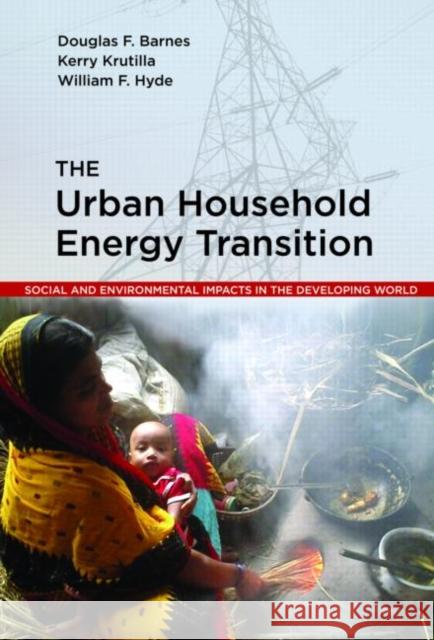The Urban Household Energy Transition: Social and Environmental Impacts in the Developing World » książka
The Urban Household Energy Transition: Social and Environmental Impacts in the Developing World
ISBN-13: 9781933115078 / Angielski / Miękka / 2005 / 142 str.
As cities in developing countries grow and become more prosperous, energy use shifts from fuelwood to fuels like charcoal, kerosene and coal, and, ultimately, to fuels such as liquid petroleum gas, and electricity. Energy use is not usually considered a socio-economic issue. Yet, as this book demonstrates, the movement away from traditional fuels has a strong social class dimension, as poor people are the last to attain the benefits of using modern energy. The result is that health risks from the continued use of wood fuel fall most heavily on the poor, and indoor pollution from wood stoves has its greatest effect on women and children who cook and spend much more of their time indoors. Barnes, Krutilla, and Hyde provide the first worldwide assessment of the energy transition as it occurs in urban households, drawing upon data collected by the World Bank Energy Sector Management Assistance Programme (ESMAP). Using this rich set of data, the authors describe problems and policy options associated with each stage in the energy transition. markets and demonstrate how the collection of biomass fuel contributes to deforestation.











